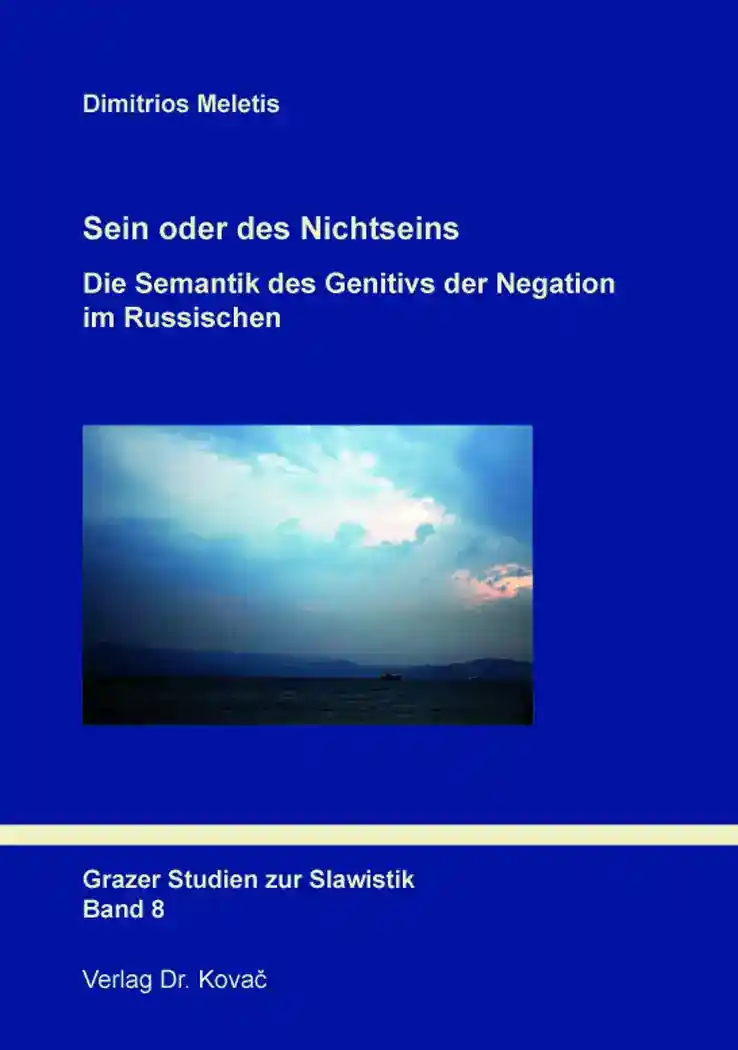Dimitrios MeletisSein oder des Nichtseins: Die Semantik des Genitivs der Negation im Russischen
Grazer Studien zur Slawistik, volume 8
Hamburg 2017, 216 pages
ISBN 978-3-8300-9152-3 (print) |ISBN 978-3-339-09152-9 (eBook)
About this book deutschenglish
The genitive of negation (GenNeg) is a linguistic phenomenon typical of Slavic languages. In Modern Russian, it occurs syntactically in both subject and object positions, competing with the nominative and accusative, respectively. These case alternations have posed numerous difficult challenges for linguists for more than a century, of which the present thesis addresses a central one: Which contexts allow the use of GenNeg and what differences in meaning result from the mentioned case alternations?
After a description of the genitive in Russian as well as a thorough presentation and discussion of the most relevant semantic, to some extent also syntactic theoretical approaches to GenNeg, the theory shall be tested in a qualitative analysis of selected examples taken from the literature on GenNeg. Furthermore, analogous linguistic structures from the Russian National Corpus as well as grammaticality judgments from L1-speakers of Russian will be used to review how the examples reflect the reality of modern language use.
It will be shown that nouns which allow assignment of GenNeg display the following features: Firstly, they lack a relative presupposition of existence/presence, which means that it is not assumed that the referent they refer to exists or is present in a certain domain; secondly, they are of the semantic type < e, t> which does not denote individuals, but properties; this is why GenNeg is often interpreted as indefinite and unspecific. Processes of linguistic change determine that the frequency with which GenNeg is used is decreasing, whereas the other cases (nom and acc) become the neutral, unmarked choices.
On the basis of the systematic description of the state of the arts as well as the analysis of selected examples desiderata are presented that serve as starting points for future research on this topic.
Ihr Werk im Verlag Dr. Kovač

Möchten Sie Ihre wissenschaftliche Arbeit publizieren? Erfahren Sie mehr über unsere günstigen Konditionen und unseren Service für Autorinnen und Autoren.
